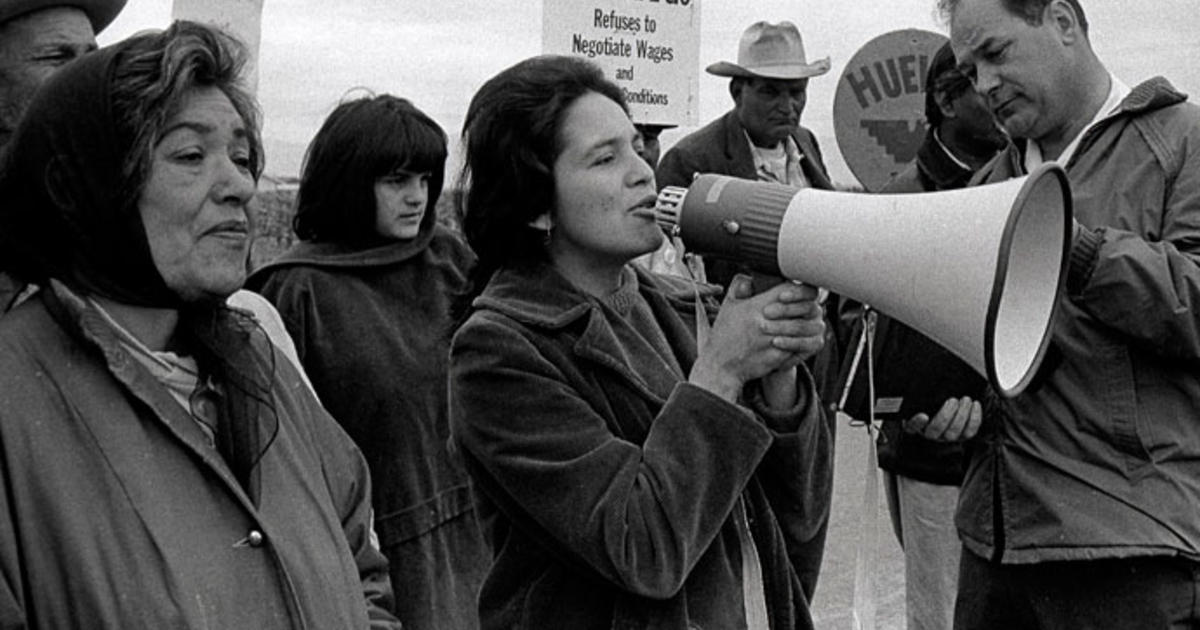
It’s becoming increasingly rare to see a day go by without hearing about a profoundly moving and human statement through the form of activism. In an age of reality show presidents and racism being propagated from the highest ranks of American political office, activism of all shades has become a major part of American life, regardless of race, gender, ethnicity, sexual preference or creed. However, that was not always the case.
One of America’s great activist leaders is still standing side by side with marchers across the country, and yet many don’t know her story. Dolores Huerta is less well known than most historic activists, even than someone like Cesar Chavez who would work hand in hand with Huerta in forming the modern workers movement. Co-founder of the first farm workers unions with partner in liberation Chavez, Huerta is at once a strong willed mother of 11 children and also a profoundly influential leader of ‘60s and ‘70s women’s, Hispanic and worker’s rights. And you can add “subject of an award-winning documentary” to the bottom of that list.
Entitled Dolores, director Peter Bratt attempts to tell Dolores’ story in all its ups and downs, blending archival materials with new interviews with friends, family, historians and contemporaries. With the central thesis that Huerta is a name not known well enough given the influence she had over American politics, Dolores is a captivating and lively documentary that doesn’t veer too far into experimentation yet never loses the attention of even the most hardened documentary film aficionado.
Clocking in at just a pinch over 90 minutes, this Sundance award-winning documentary is a real delight. We get broader historical context through the form of historians like Angela Davis, and Huerta’s own relationship with Chavez is discussed through the eyes of both sides of the partnership. Toss in a few glimpses into the mindset of the men and women who would like to see her place in history diminish even more, and you have a film of impeccable context and energy.
Huerta is an interesting figure. A woman of profound importance to movements that are still being forwarded to this day, her place in the history books has (in some cases literally) been wiped away. While her male counterparts have become the central focus for any burgeoning democratic socialist, Huerta’s stance within the eyes of modern activism is not what it should be. Bratt’s film is at its best when it truly fleshes out just who this woman was both on the podium and off. Truly living what she preached, Huerta is a feminist figure that is as defiant in her political stances as she is capable in her ability to organize. And it’s also a film not afraid to delve into the impact, at home, of her political beliefs. 11 children call her mother, and while respect is no doubt the first thing people think of with regards to Huerta and the life she lived, there’s also a great deal of damage that has been dealt to those closest to her. The stakes may have been high, but they pale in comparison in many ways to the stakes felt at home by her own family. Bratt’s film, while ultimately a love letter to the legendary activist, is not afraid to give more intimate context to the life she led. And that means as both a political leader and also a mother.
It is, however, a relatively classical documentary. While yes, the subject matter is inherently captivating and the context surrounding the information is quite compelling, there’s little in the way of actual style here. Editing has always meant more to modern documentary storytelling than aesthetics, yet this is neither an interesting looking nor put together piece of work. It isn’t without energy, certainly, but this is the exact type of documentary born to be played on a Wednesday evening on PBS. Yet, that’s not a pejorative. This is a moving and intellectually engrossing piece of nonfiction filmmaking that may not break ground stylistically but helps shine a light on a political leader more people need to talk about.



